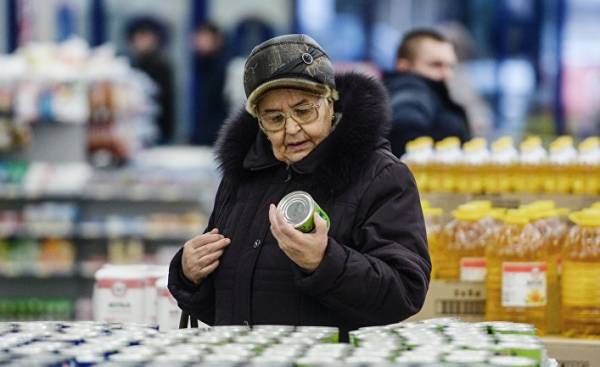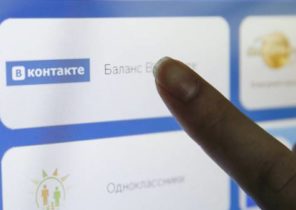
Despite the sanctions and the Russian embargo on the import of certain agricultural products, Russia remains the most important Czech agrarian market outside of the European Union. Czech Republic even sent to Russia’s own agricultural diplomat Nikola Hruskova. “Indeed it is noticeable that in the Russian stores are Russian food and other goods, and Russians are happy to buy and support,” says hruskova.
Bulldozer — the food
— Czech company Madeta is probably most often cited as an example when talking about the companies that the Russian embargo has hurt the most. And who else it affected?
I don’t want to list specific names, but the fact is that most of the problems due to the embargo came from companies operating in the dairy industry. We have about 20 companies certified for export to Russia, and now they can’t deliver their products. Furthermore, the prohibition referred to those companies that produce meat products.
— Is there a possibility to circumvent the sanctions, more food embargo? We know of cases when considerably increased export of exotic papaya, supposedly grown in Belarus…
— I know about this from Russian media, and in such attempts there are two scenarios of the situation. The first is successful: trade statistics show that export of marine fish from Belarus to Russia increased by about 15 times. Also increased the volume of imported exotic fruits from there. So some European countries do manage to continue their exports in this way. But there are cases when the goods are detained on the Russian border, at customs, and then liquidate.
— Do a demonstrative destruction of Western products, when they crushed on the street with a bulldozer?
— Sometimes in some places that to me catches the eye, but I think that special effect to no avail. The Russians themselves reacted to these not very good, so demonstrative destruction do not show as wide as it was right after the embargo.
— Attempts were also made to discredit the quality of Western products with scams with inadequate hygiene, defects of products…
— Now discuss several cases related to Belarus. Several Belarusian dairy and meat processing industries have banned the export to Russia, explaining it just the fact that their products do not meet all veterinary and other regulations. This happens all the time.
— What possibilities, despite the embargo, opened in Russia before the Czech companies operating in the agricultural and food sector?
— Our advantage is the fact that before the sanctions we exported to Russia goods such as beer, hops, poppy seeds, food, sweets, all these are our main agricultural export names, which are not subject to penalties, although due to the devaluation of the ruble the volume of export of these products is still reduced. There is a potential for export of technology, the construction of Breweries and microbreweries, supply lines, bottling, bakeries, agricultural machinery…
Self-sufficiency by 2020?
In September 2016, the Minister of agriculture of the Russian Federation Alexander Tkachev said that the sanctions need to save as much as possible, because “now Russian consumers are happy that stores are domestic products”. How are things in Russian stores from the point of view of the buyer? If there is a noticeable decrease in the number of Western goods?
— I started working in Russia at the time when there were sanctions, therefore, did not witness the tipping point, when the supplies of Western goods. But now really noticeable that in the Russian stores are Russian food and other goods, and Russians are happy to buy and support their producers. Although I think that the efforts that we, as consumers bought more Czech products are attached with us.
— In Russia, even talking about food self-sufficiency. To achieve its plan by 2020. Is it real?
— In the doctrine about food self-sufficiency, Russia has established several basic foods. The Russians want them to provide for themselves. Though not hundred percent, but 85-90% accurate. We are talking about all types of meat, milk, potatoes, grain and other major products. According to statistics, Russia fails to execute this doctrine in the case of most items. Still there is shortage of milk, fish and beef.
— Does this mean that after, for example, will remove the sanctions, then embargo of food, to establish themselves on the Russian market in these segments is much more difficult?
— Difficult to predict, and yet the quality and quantity are two different things. The Russians manage to provide yourself with the right amount of food, but the quality of some products is clearly not ideal. So everything will depend on how will the Russian consumer, when he’d had the choice between domestic and imported products. Another important factor is the price. It may seem that domestic products should be cheaper than the one imported, but it is not always the case. Russian agriculture is not very efficient, and it often happens that the domestic production is more expensive overseas.
— Great if You like the agrarian diplomat’s time in Russia?
— Quite large, although I am often asked what does an agricultural diplomat in Russia at a time when there are sanctions. There is a perception that the sanctions apply to all, in Russia we can not export anything at all. But it’s not. Russia is no longer interested in the Czech firm. Therefore, we engaged in projects, localized in Russia, export and difficult process of registration certificates.






